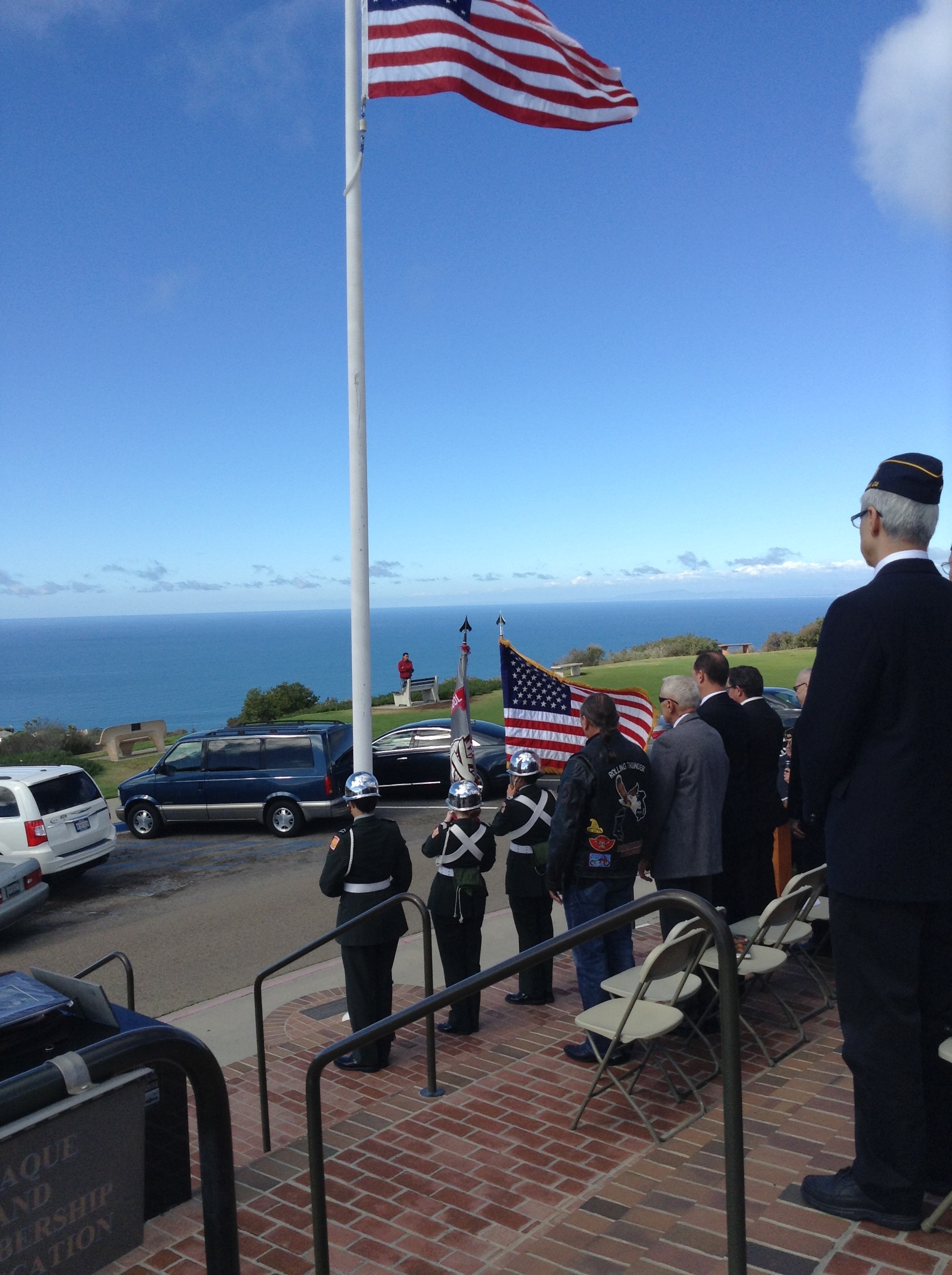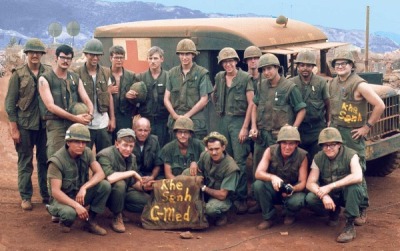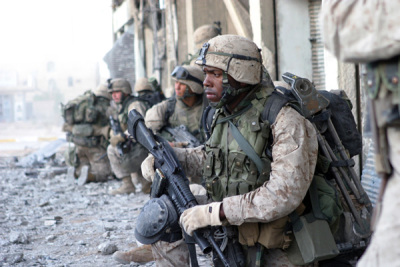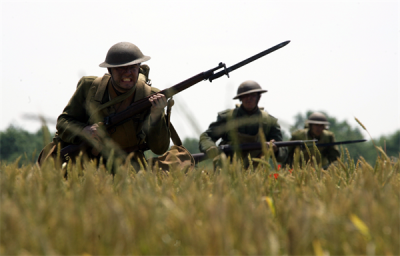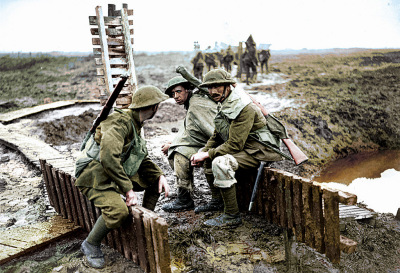Veterans Day 2014
“The cost of war is in two parts: The cost of the battle itself, which is immediate; and the cost of care for those sent to fight the battle. Since most of those fighting the battle are young, that cost can continue for seventy years, or even longer. But when the country needs veterans, it gets veterans; when it feels it no longer needs veterans, it forgets veterans.”
These are the poignant words of former U.S. Marine Terry Tracy, himself a 100% disabled combat veteran (Vietnam) and one of the most knowledgeable Americans concerning Veterans Affairs as the now retired Service Officer of The American Legion Department of California for almost twenty years in which literally tens of thousands of veterans were aided in VA health and pension claims.
The truth of Terry Tracy’s words should be remembered not only on Veterans Day but every day if we Americans are to “keep the faith” with all those veterans who have served and sacrificed in defense of American freedom, including the almost 1.4-million veterans who have given their lives for our freedom from the Revolutionary War against Monarchial tyranny to the present war against Islamic terrorist tyranny.
But, even today, as Veterans Day is observed while Americans once more must stand and fight to defend freedom from tyranny, many Americans, not only ordinary citizens but many politicians, office holders and policy makers — not to mention the estimated 11-million or more aliens illegally living in America while still bearing allegiance to and flying the flag of the countries of their origin — either do not remember or have never learned of the truth of the costs of war as expressed by Marine Terry Tracy, or even the history of why there is a “National Veterans Day.”
That history of the Veterans Day Holiday should be known, including being taught to school children of the rising generation (instead of being taught by progressive liberal government school teachers and bureaucrats such farcical multi-cultural concocted non-holidays as “Kwanza” [not in fact an African tradition] or “Cinco de Mayo”[not in fact a Mexican tradition] ), if the service and sacrifice of American veterans in defense of freedom, and the true dual costs of war – the costs of the battle, followed by years-long continuing costs of care for those who fought the battle — are not to be forgotten.
Veterans Day observances traditionally commence at the 11th hour of the 11th day of the 11th month of the year, the anniversary of the date and time of the signing of the Armistice ending combat in World War I on November 11, 1918.
It was World War I, “The War To End War,” “The War To Make The World Safe For Democracy,” which gave birth to what was originally Armistice Day, to honor WWI veterans. It was thought then that WWI was so terrible that there could not be another such war. Only twenty years later, the even more terrible World War II began in Europe in Euope. By Act of Congress, WWI Armistice Day is now Veterans Day, honoring all veterans of all the wars.
It has to be remembered that WWI was a most terrible war, the horrors of which are difficult to comprehend. The spark which set off WWI was the assassination of Archduke Francis Ferdinand, heir to the crown in Austria, and his wife, on June 28, 1914, in Sarajevo, Bosnia, by a Serbian nationalist. But scholars debate to this date who and what actually caused the war to escalate as it did into a world war, and why, in fact, it was fought. Each side blamed the other. Whatever the answer, a complex web of entangling alliances and mutual defense treaties set off what would become the most horrendous war in the history of the world.
An estimated 10-million combatants were killed in that war; an estimated 22-million were wounded. It was a war in which almost 100,000 died from poison gas, use of which has since then been banned as a war crime. It was a war fought on the model of earlier “trench warfare” in which waves of soldiers charged across fields to combat the enemy in an opposing trench often in bayonet and hand-to-hand combat. The difference was that in WWI it was not soldiers with rifles and bayonets in the opposing trench; it was a trench armed with machine guns which did not exist in the earlier wars. Troops were slaughtered in those fields by the tens of thousands in single days of fighting in the new reality of WWI, while their generals drew battle plans based on outdated tactics of the last war.
For but one example, the battle of Verdun, regarded as the most momentous battle of WWI, began in mid-February, 1916, when the Germans launched an offensive. By mid-March, more than 90,000 French troops had been killed in that one month. The battle of Verdun went on for seven (7) months in which more than 700,000 troops died, a hundred thousand dead soldiers per month.
The United States did not enter the war until 1917. President Woodrow Wilson, a Princeton academic progressive liberal politician who believed the U.S. Constitution was outdated, ran for re-election in 1916 as the Democrat Party candidate in a campaign based on the slogan, “He Kept Us Out Of War.”
Wilson was sworn in on March 4, 1917. Only a month later, his deceitful campaign slogan no longer needed, Wilson called on Congress to declare war on Germany, which it did on April 6, 1917. The first of some 4-million Americans who would serve in that war began arriving in France in June, 1917.
There is no doubt that the Allies defeated the Central Powers – Germany, Austria-Hungary, Bulgaria, and the Muslim Ottoman Empire –because of the American sacrifice. Prior to the entrance of the U.S. into the war, Germany was victorious and advancing on three fronts. By 1915, Great Britain so feared defeat that it established a naval blockade in an attempt to literally starve Germany into surrender. In response to the starvation blockade, which is today generally regarded as a violation of international law by scholars, the Germans declared all the seas around Great Berlin and Ireland to be a “war zone” and all shipping subject to German submarine U-Boat attack. Wilson, after his re-election, cited the submarine threat to American shipping as the reason to declare war on Germany. The tide of war turned when the Americans arrived, and not before.
The first Americans to die were three soldiers who were killed in combat on Nov. 3, 1917. By the time the Armistice was signed a year later, on Nov. 11, 1918, some 117,000 Americans, almost 10,000 per month of combat, had given their lives in service.
The horror of WWI, side-by-side with the honor of those Americans and allied forces who served, fought, and died, is expressed most profoundly by the poem, “Flanders Fields, written by then-Major John McCrae, MD, a surgeon in the Canadian Army who was born in 1872 and would die in 1918, the year that terrible war ended.
IN FLANDERS FIELDS
By Lt. Col. John McCrae, Army of Canada, WWI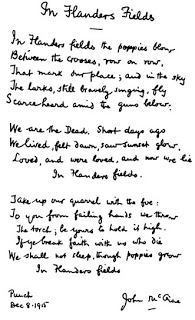
In Flanders Fields the poppies blow,
Between the crosses row on row,
That mark our place; and in the sky
The larks, still bravely singing, fly
Scare heard amid the guns below.
We are the Dead. Short days ago
We lived, felt dawn, saw sunset glow,
Loved and were loved, and now we lie
In Flanders Fields.
Take up our quarrel with the foe:
To you from failing hands we throw
The torch; be it yours to hold it high.
If ye break faith with us who die
We shall not sleep, though poppies grow
Although “Flanders Fields” was written by a grieving Dr. McCrae in the devastation of the battle of Yres in WWI, days after his best comrade had been killed, his words reach across the more than a century to bring home the reality of all the wars, and of the service and sacrifice of all those Americans who have served when our country has called, believing that the defense of freedom was why they were serving, and was worth dying for if necessary. It is a poem which calls on us not to “break faith” with those who gave their lives so that we might be free.
May God bless all of them, all the veterans who have served in defense of our freedom in all the wars, and may the country whose freedom they preserved honor them on Veterans Day and on every day. They kept the faith with us; and, as expressed in the haunting words of “Flanders Field,” we must not “break faith” with them.
[Rees Lloyd a veteran and longtime California civil rights attorney, now resides in Portland and is a member of the Victoria Taft Blogforce.]


